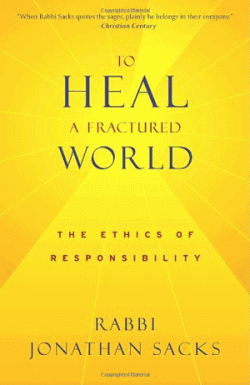 "I have set before you life and death, the blessing and the curse: choose life so that you and your children may live". Deuteronomy 30:19
"I have set before you life and death, the blessing and the curse: choose life so that you and your children may live". Deuteronomy 30:19
Victor Frankl, in Man's Search for Meaning, powerfully described his belief that you can choose your attitude in any given set of circumstances no matter how tragic.
The ability to respond constructively to tragedy in our lives depends on the kinds of stories we tell ourselves about what has happened to us.
What governs human behavior is not what befalls us but how we perceive what happens.
Recently, something written by British Chief Rabbi Jonathan Sacks impressed me. In his book, To heal a fractured World, he made the case for repentance and taking responsibility as an effective way forward when we are in trouble or when bad things happen.
In this book, Sacks outlines how a penitential culture is the opposite of a culture of blame.
In a 'blame culture' one tends to be a passive object and take on the role of a victim: 'it happened to me' or 'they did it to me'. This in turn leads to a sense of helplessness.
In a penitential culture a person tends to be a more active subject willing to take some responsibility for the situation and ask: 'Now what can I do about this situation?’
Rabbi Sacks claims when people understand that good and evil are both within the context of God's covenant with them, this worldview helps them to have a sense of hope and responsibility.
Hope is justified - not by optimism - but by the terms of the covenant between Heaven and Earth.
The faithfulness of God is the basis for hope.
Fr John Burger SSC is currently on the General Council of the Columban Fathers in Hong Kong.
Read more articles from the current E-News
or